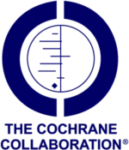About the Research Databases
The Wellness Evidence team of doctor consultants selected four of the most respected evidence-based medicine databases that are also particularly useful for wellness-focused research: Natural Standard, The Cochrane Library, PubMed and the TRIP Database.
Please read “Important Things to Know,” including info on each database.
We’ve made researching a particular therapy simple by pre-searching the evidence at each database. (See evidence below.) However, please note that evidence-based medicine relies on a research hierarchy, because not all evidence is created equal. Learn more about how the medical experts classify this research.
We’d like to hear from you. If there is a Wellness Evidence discipline you would like to see on these pages, please email us.
PubMED
The TRIP Database, launched in 1997, is a search engine designed to allow clinicians to quickly find answers to their medical questions using the best available evidence. Trip’s founders realized medical professionals were being forced to perform time-consuming searches at multiple websites to get at the most relevant information. So, they designed TRIP as a meta-search engine, allowing users to both simultaneously search thousands of databases, medical publications and resources, as well as easily filter the results: limiting searches to the most stringent, highest-quality medical evidence or expanding them to include results like patient information, news articles, etc.
Cochrane
British epidemiologist Archie Cochrane is regarded as the originator of the Evidence-Based Medicine concept (in the 1950s). And the Cochrane Library is a collection of very high-quality medical databases, which have, at their core, the Cochrane Reviews, systematic reviews and meta-analyses which summarize and interpret the results of well-conducted, randomized controlled trials… the ‘gold standard’ in Evidence-Based Medicine.
The Cochrane Library is a subscription-based database but offers free access to abstracts.
- Access Cochrane’s research and search for “Aromatherapy”
TRIP
The TRIP Database, launched in 1997, is a search engine designed to allow clinicians to quickly find answers to their medical questions using the best available evidence. Trip’s founders realized medical professionals were being forced to perform time-consuming searches at multiple websites to get at the most relevant information. So, they designed TRIP as a meta-search engine, allowing users to both simultaneously search thousands of databases, medical publications and resources, as well as easily filter the results: limiting searches to the most stringent, highest-quality medical evidence or expanding them to include results like patient information, news articles, etc.


























































